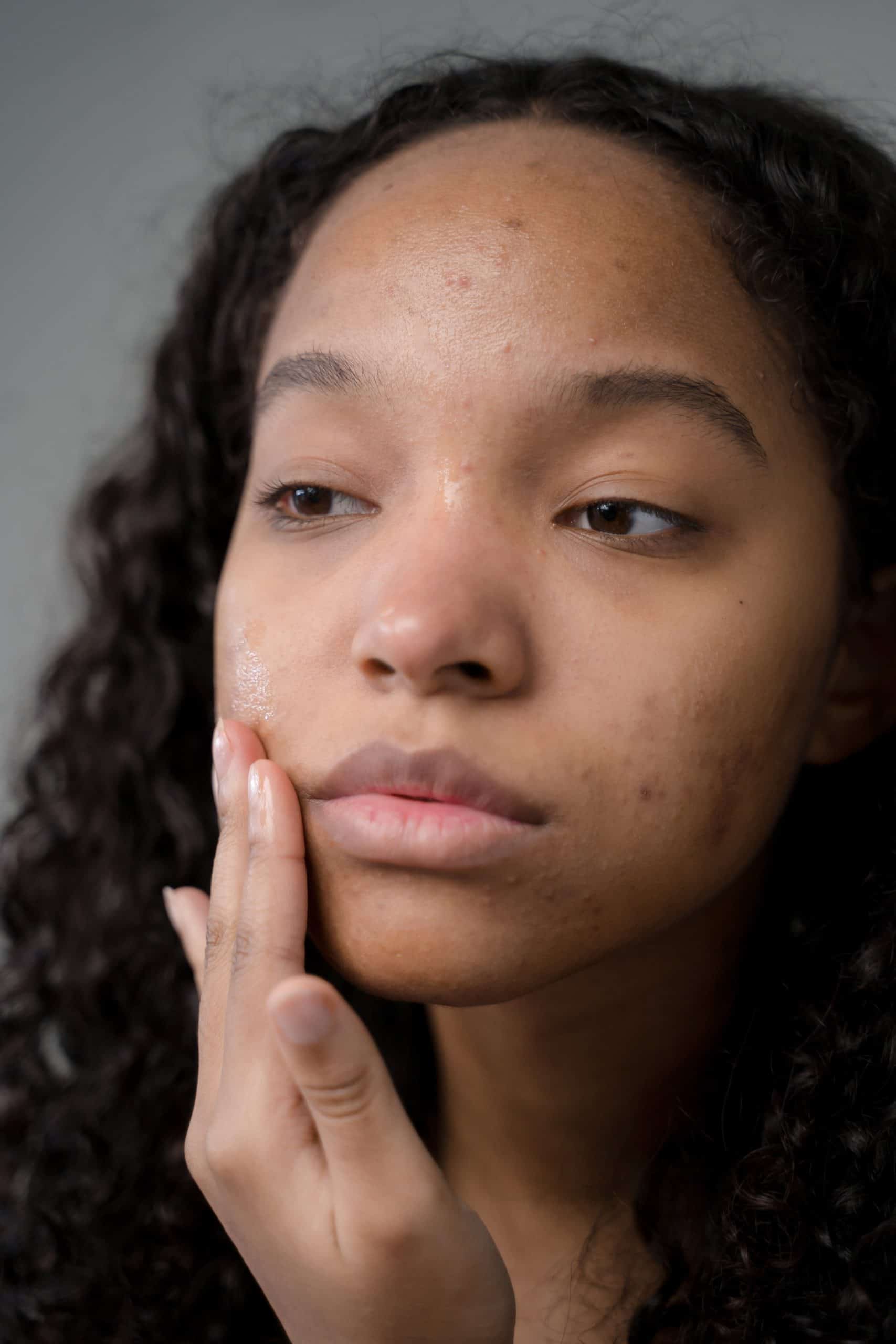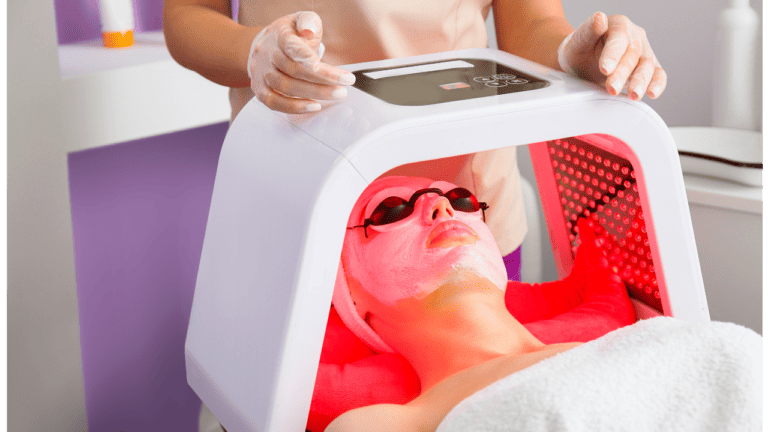Are you struggling with acne scars and looking for a way to cover them up without worsening your skin’s condition? You’re not alone. Many people find themselves caught in the frustrating cycle of using makeup to conceal acne scars, only to experience more acne flare-ups that lead to additional scarring. I’ve been in that loop, too, and I understand how you feel. But guess what? I discovered that using light makeup can minimize the chance of acne flare-ups while still providing coverage for those pesky scars. In this article, we’ll guide you through the process of prepping your skin, selecting makeup with the right ingredients and labels, and applying makeup in a way that keeps your skin healthy and happy. Let’s break free from that vicious cycle together!
Understanding Acne Scars and Their Impact on Confidence
Acne scars can significantly impact our confidence because, in a society that often values appearance, they can make us feel self-conscious and less attractive. Confidence is essential for our mental well-being, and it’s important to feel good about ourselves regardless of our physical appearance.
However, it’s difficult to control how others perceive us, and unfortunately, clear skin is often associated with better health, cleanliness, and attractiveness. This societal pressure can make acne scars even more challenging to accept. That’s why many people, including myself, turn to makeup as a tool to help boost confidence and create the illusion of clear skin. While it’s vital to embrace our unique qualities and promote self-love, makeup can be an empowering ally in our journey to feeling more secure and confident in our own skin.
Prepping Your Skin for Makeup Application
I can’t stress enough how important it is to take the time to prepare your skin before applying makeup. Trust me, I’ve learned from experience that having a smooth base makes all the difference when it comes to using less makeup.
When my skin is clean, exfoliated, and well-hydrated, I find that my makeup glides on effortlessly and blends seamlessly. This allows me to achieve a natural look while using minimal product, which is great for my skin’s health. I’ve also noticed that my makeup doesn’t settle into fine lines or emphasize any uneven texture when I’ve put in the effort to prep my skin. So, if you’re looking for a better makeup experience, definitely give your skin the attention it deserves before diving into your makeup routine.
Cleansing and Toning
For people with acne scars, we more than likely still have acne-prone skin and should definitely begin our makeup routine by gently cleansing our face with a mild cleanser to remove any dirt, oil, or makeup residue. Select a cleanser specifically designed for acne-prone skin, which often contains salicylic acid or benzoyl peroxide to help combat breakouts. Follow up with an alcohol-free toner to balance your skin’s pH level, tighten your pores, and remove any lingering impurities.
Exfoliating and Moisturizing
Exfoliating 1-3 times a week helps remove dead skin cells and impurities, creating a smoother canvas for makeup application. I suggest choosing a gentle exfoliating product suitable for your skin type, such as chemical exfoliants like alpha-hydroxy acids (AHAs) or beta-hydroxy acids (BHAs), or physical exfoliants like gentle scrubs or brushes.
However, if you are using physical exfoliants be careful because often we can get too enthusiastic and over-exfoliate. This leads to irritation and inflammation which could cause more acne scars, so just remember to strike the right balance for your skin.
After exfoliating, apply a lightweight, non-comedogenic moisturizer to hydrate your skin without clogging your pores. Look for moisturizers containing soothing and anti-inflammatory ingredients, such as niacinamide or green tea extract, to help calm your skin and reduce redness.
Importance of Sun Protection
Using a broad-spectrum sunscreen with an SPF of at least 30 is crucial for protecting your skin from the sun’s harmful rays. In particular, water-based sunscreens are great because they are usually cooling to the touch which soothes irritated and inflamed skin. Also, keep in mind that sun exposure can worsen the appearance of acne scars and increase the risk of hyperpigmentation, so apply sunscreen even on cloudy and rainy days.
Choosing the Right Makeup Products
Hypoallergenic and Non-Comedogenic Makeup
Opt for makeup products that are both hypoallergenic and non-comedogenic. Hypoallergenic makeup is designed to be less likely to cause allergic reactions or irritation, while non-comedogenic makeup won’t clog your pores, reducing the risk of breakouts.
Oil-Free or Water-Based Formulas
Choose oil-free or water-based makeup products that are lighter on your skin and less likely to cause breakouts. These formulas are more suitable for acne-prone skin.
Selecting the Right Shade and Undertone
When choosing foundation and concealer, it’s essential to select the correct shade and undertone for your skin. This will ensure a seamless blend and natural finish, making your makeup look more convincing and effective at covering acne scars.
Makeup Application Tips
Using Color Correction Techniques
Before applying foundation and concealer, consider using color-correcting techniques to neutralize redness or discoloration from acne scars. Green color correctors can help counteract redness, while peach or orange tones can neutralize dark spots or hyperpigmentation. Personally, I’ve found that green color correctors are the most important to me because I have a lot of redness in my skin.
Pro Tip: Apply color correctors sparingly and blend them well to avoid a cakey appearance because you don’t want to have green dots on your face, which would look rather odd.
Use a Light-Reflecting Primer
A light-reflecting primer can help minimize the appearance of acne scars by diffusing light and creating an optical illusion that makes the skin appear smoother and more even. Light is the main culprit behind how people perceive our skin, which is why this step is actually very important. Apply the primer after moisturizing, focusing on areas with acne scars or other imperfections.
Read More: Why Acne Scars Look Worse In Certain Lights
Apply Foundation and Concealer Sparingly
Use a light hand when applying foundation and concealer, focusing on areas with acne scars or active breakouts. I recommend choosing a lightweight foundation and a heavy coverage concealer, this way you can cover more important spots Opt for non-comedogenic, oil-free, or water-based formulas that provide buildable coverage. Blend the products gently using a damp makeup sponge or your ring finger.
Set Your Makeup with a Light Powder
To prevent your makeup from creasing or fading, set it with a light dusting of translucent setting powder. This will help lock your makeup in place without adding extra coverage or cakiness. The powder is always a way to set makeup, and is actually quite lightweight.
Experts also say that powder is better for acne-prone skin than liquid foundation, so you could consider using a powder foundation as well as a light powder. However, personally, I find that a powder foundation is not as effective in covering acne scars, and I often apply more than necessary leading to my face feeling cakey, so I only use powder as a way to set my makeup.
Enhancing Your Features
Draw attention away from acne scars by enhancing your best features. Apply a natural-looking blush to the apples of your cheeks, add a touch of highlighter to the high points of your face, and define your eyes with a soft eyeshadow or mascara. This will create a balanced and radiant look that accentuates your natural beauty.
Maintaining a Healthy Skincare Routine
Removing Makeup Thoroughly
At the end of the day, always remove your makeup thoroughly to avoid clogged pores and irritation. Use a gentle makeup remover followed by your regular cleansing routine.
Consistent Skincare Regimen
Maintain a consistent skincare routine, including cleansing, toning, exfoliating, moisturizing, and applying sunscreen, to promote healthy, clear skin and minimize the risk of breakouts.
Seeking Professional Advice
If you’re struggling with acne scars or persistent breakouts, consider consulting a dermatologist or skincare professional for personalized advice and treatment options. They can recommend targeted treatments and products tailored to your specific skin concerns.
Conclusion
Covering acne scars with light makeup doesn’t have to be a daunting or complicated task. You just need to prepare a smooth base by exfoliating your skin often, choose good makeup that won’t clog your pores, and apply them in the right order as we mentioned, so that you can get the best coverage that feels light and still breathable for your skin.
Remember that healing acne scars is a process and makeup is only a means to help you along the journey to clear skin. Be patient and love yourself always.






